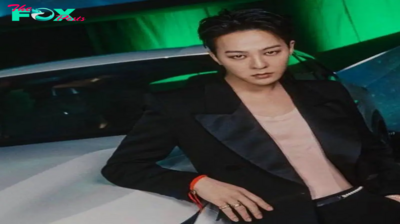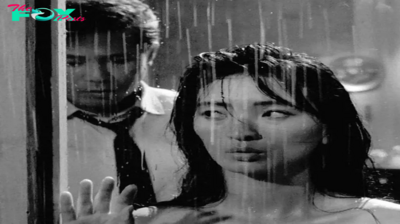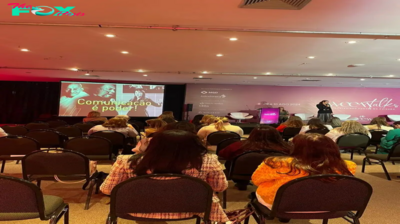Entertainment
AMERICAN THEATRE | Luis Alfaro: The Pleasure of Not Understanding
Luis Alfaro.
Luis Alfaro’s play The Vacationers, the script of which seems in full in our Summer time print concern, tells the tales of six interdependent Carthusian brothers at a crumbling monastery in central California. Right here Luis speaks to longtime collaborator Sean San José, inventive director of Campo Santo and now the Magic Theatre, the place the play had its premiere, about their lengthy journey collectively.
SEAN SAN JOSÉ: We’ve been working collectively for many years now, and that looks like such an exquisite, lengthy, limitless highway. To not overwork the metaphor, however the journey continues with The Vacationers; this actually life-changing expertise feels prefer it needs to maintain strolling with us. It’s nonetheless current, isn’t it?
LUIS ALFARO: Very a lot. A part of the journey I’ve been having with you can also be a journey concerning the Magic Theatre. It’s a type of legendary place; it’s acquired all of its historical past, and that historical past can also be a means of working. It has at all times been a giant a part of my life, despite the fact that I hadn’t participated there—simply figuring out Mame Hunt, and that the theater began with poets, and it has a historical past we’re each so intimately concerned in, with folks like Jessica Hagedorn and Paula Vogel, all of our idols and buddies. The Vacationers looks like a play that lives within the constructing, proper? We’ve added one other brick, or one other ghost, into the constructing.

Individuals that may learn the play might discover that the character names for probably the most half carry the precise given names of the actors. And that’s the means you formed it. The work we’ve gotten to do collectively, particularly with Campo Santo, has at all times felt very intimate, very private, whereas in some way being about these epic journeys. The best way we create collectively is, it’s a room full of individuals—it’s not a writer-to-actor-alone journey. What does that imply to you?
The previous couple of experiences of working with you and Campo Santo have been deeply emotional. My dad died after we had been engaged on all Alleluia, The Street; that was a present the place I simply wished to cease, and also you guided me via that journey of grief. With this, the pandemic had been such part of this play. Actually, it’s a pandemic play. I by no means felt depressed or lonely like I felt through the pandemic. So the piece is absolutely an expression of a second, as manifested in this type of situation.
Usually after I go right into a room—I work lots with Chay Yew, and we’re like technicians, as a result of Chay is a poet additionally. So we’re speaking construction and kind and story lots. With Campo Santo, we didn’t begin with the play; we began with this superb meal with all people there. You go searching and it’s not simply the actors: It’s the sound designer Chris Sauceda and the stage supervisor Lauren Quan, all of the collaborators—corresponding to long-time collaborators Joan Osato and Tanya Orellana—who’re going to make this factor. There’s one thing very joyful in feeling held up in neighborhood. The strain goes away, however the emotional funding grows. You fall in love with all people; you’re very actual with all people. You’re spending numerous time with those that usually get parsed out to completely different factors of the schedule; all people begins collectively. So I by no means felt like I sat on the desk alone.
I’ve stated it many occasions, however in my time on the Oregon Shakespeare Pageant, I spotted I’m a repertory author. I beloved being there and writing for very particular folks. However rep theaters don’t actually exist anymore. So one thing about this fulfilled one thing for me round that: writing particularly for folks, writing to their strengths, writing to their challenges, additionally writing to their story. You may attempt to say, “Nicely, I’m the author and I’m gonna sit over right here.” However that doesn’t occur in a Campo Santo present. What occurs is that everyone’s story is within the present; all people is within the expertise of the creation of the play. The strains inside this play are actually folks’s blood and tears. How enjoyable to do a play that’s not a play—that’s extra of a ritual.
It’s so stunning to listen to you describe it. It sounds so open, barely formless by way of play construction. However I cannot let you let this expertise of your course of be instructed as one thing the place you had been merely an observer and also you recorded tales. What you probably did on this piece is absolutely gorgeous: You created characters and a world and a narrative, after which nearly subconsciously filtered in these soul threads of individuals’s lives or their tales. It couldn’t actually be legible on the web page; it wasn’t discernible even whereas studying it collectively. It was solely skilled while you watched an actor embrace this secretive or unconscious a part of themselves, one thing they buried—as with the characters within the play, the factor that has prevented them from reworking or has them caught. I’ve by no means skilled something like that. I believe that’s what makes the factor so rarefied, so superior to behold. It was one thing actually felt within the room, however you couldn’t identify it one-to-one, like, “Oh, that’s Juan Amador’s story.” That’s why it’s resonating. It’s like placing one thing within the river; how are you going to see that? You’re not going to see it till you swim. Even then you definitely may not see it—you’ll simply really feel it.
I’m fascinated with swimming: You leap within the water and, in case you discovered how you can swim while you had been two or three or 4, you simply swim once more. That’s the enjoyment of the method I discovered from María Irene Fornés: I simply let go of every thing. After all, there’s this lengthy historical past of writing performs and fascinated with arc and character and every thing that you just’re supposed to think about. However in reality, that’s not the way you’re main; you’re main along with your coronary heart.

When do you notice a factor like that? We talked about the good Jessica Hagedorn, and the way in which her thoughts works, it’s all collage. She goes in and she or he’s like, “Fuck that—we’re not telling a straight story, as a result of we haven’t lived straight lives.” Your play has a very clear construction and actually sturdy characters, it has occasions. However I keep in mind a sure level the place you led the corporate, together with the unbelievable director, Catherine Castellanos, and stated, “This ain’t that; we’re doing a special factor.” Do you notice that while you’re writing it, or after you’ve heard it 10 occasions? Or was it a brand new sprout that arose someplace within the center?
I believe the enjoyment of the early years of writing with Irene or Mac Wellman or Paula Vogel—they had been all actually invites to bump at nighttime lots, to enter rooms the place you had no concept what was occurring, and to write down via that, write with out having to know what your ending is. There’s one thing very thrilling about this for me, which is to not know, so simply lead along with your coronary heart, let your emotional facet be the factor that’s writing the play. Then you have got the muscle of writing that’s at all times with you, that’s not going to allow you to go too far off the deep finish. The mixture of these two for me felt like: Okay, I see what’s occurring right here is that I don’t know what’s occurring, however I’ve to belief that we’re going someplace, after which the little issues will occur—the little breakthroughs and connections begin to occur. And the play begins to depart your yellow pad and it begins to have a sound, which I believe is at all times my favourite a part of writing—the place when it begins to go away from me as a result of someone else is now voicing it, taking it away and placing it within the air.
I’ll say—I don’t know in case you keep in mind, however a few of our conversations had been, “I simply don’t know what’s occurring right here!” You must be enthusiastic about not figuring out what’s occurring; that’s the enjoyment of creating artwork. If you realize the place you’re going, why go? A few of what’s taking place, at the very least for me at my age, is that I simply get misplaced increasingly typically.
However it does get thrilling to not know, and to experiment deeper and fuller and richer and to belief your instincts about what’s intuitive and what isn’t instinctual. There’s one thing very primal occurring, one thing very important concerning the life-and-death expertise.
It’s not a shock that this story got here to me, of those guys in a seminary, so carefully connected to farmwork, the Central Valley, warmth, agriculture. I believe it’s actually about how we survive within the panorama of America proper now, which looks like a dumpster hearth but in addition superbly doable. We’re at all times form of dwelling on that unusual edge. I really feel that very a lot in my life proper now, like, Oh my God, every thing’s a multitude, and in addition, how great and doable every thing is correct now. That’s what at all times retains me busy, retains me crammed with the inquiry of individuals and the enjoyment of discovery. That’s what was so joyful about this expertise: being so intimate with actors, in a means that doesn’t really feel like 9 to five. We had meals collectively that may at all times stay deep in my coronary heart.
A lot of the play is about what’s taking place on this present second, and the despair, and the place do you discover love; and there’s additionally all of the stuff you bury contained in the play concerning the issues that haven’t allowed us to vary in our lives.
There was a degree that I actually distinctly keep in mind, you and I talked on the telephone day-after-day throughout rehearsal, and also you stated, “Look, I’m actually fascinated with characters. The plot would be the plot. I’m fascinated with characters creating the world.” From the second you stated that, we had been in a position to deal with and embrace totally the folks in it. That confirmed us the place we had been going, but in addition that the world was about transformation, or making an attempt transformation. How courageous and the way daring to try this, to say that in the midst of the factor.
Should you create an atmosphere of risk, then something is feasible, proper? Actually. It was attention-grabbing that I had written all of this pre-play—I wrote a play earlier than the play, simply to attempt to get to the play. After we experimented, we might see: Really, it begins proper in the meanwhile this man enters with this gunshot wound. That’s not usually the place a play begins, however that’s the place this play begins. As a result of this play is a meditation, and the topic of the meditation, the pray-er, has entered. Had I stayed within the different world, I believe I’d have written three or 4 scenes earlier than that.
We did have these limitless scenes with info and the way issues labored. Ultimately, sitting with an viewers, they don’t want it. What they need is to sit down within the feeling. They don’t essentially need us to indicate them how church works; they need to simply get to the spirit of the church.
You understand, the reference factors are at all times attention-grabbing. So most of the critics had been like, “It’s Beckett.” It’s so attention-grabbing that that’s the place they enter from: the absurd, the strangeness of the world. However you and I each know the Central Valley rather well, and the Central Valley is as American as you possibly can truthfully get. It’s also a really surreal panorama, a life-and-death panorama. It’s America’s crops, it’s immigration, it’s the entire issues of the world. However it additionally looks like a panorama that’s abandoned.

To not be on the nostril about “vacationers,” however I really feel like I’ve been coaching for this for years, actually driving up and down Freeway 99. That’s the identical place that numerous our brown and API folks got here to, the place we put our fucking fingers within the grime and acquired beat up and shit on after which produced all of the meals for the fucking nation. It’s this loopy disjunct that you just’re strolling via or driving via, in my case day-after-day. After which hastily I get to work on performs with you and others, like Richard Montoya—folks with deep household roots in 99 and what it means sociopolitically, culturally. I at all times really feel like in case you set one thing on Freeway 99, it is going to be an announcement about our nation. If California isn’t an announcement concerning the nation, I don’t know what it’s. It’s not San Francisco or Los Angeles; the Central Valley is the true reflection of each the historical past and in some methods the way forward for this complete factor. You don’t have to call each single factor: It’s within the grime. It’s within the air.
And right here we’re, earlier than one other shitty election, and let’s always remember that the nation we’re dwelling in is crammed with folks of colour. As this play is crammed with folks of colour who’ve been both abused or damaged, on whose backs the remainder of the nation has walked to be able to eat. I like with the ability to be part of that type of storytelling—it doesn’t have a protest signal out in entrance, however is clearly grounded in that. It’s a testomony to your whole work, out of your years with ACT UP—all of that power remains to be inside your writing. Whether or not it’s AIDS or poverty or colour or immigration standing, they’re at all times fucking with us, and we at all times need to combat for our reality. It’s dawning on me on this second, having adopted your life and writing, that one thing that appears on the floor like a Beckett play is definitely to me rather more like an act of protest.
Truthfully, with out sounding too romantic about it, it’s not the me of it, it’s the we of it. While you had been speaking concerning the Central Valley, I used to be considering: There’s a motive why we turned collaborators and buddies so way back. Your Latino, Filipino heritage and my Chicano heritage performs into the work. That’s barely completely different for me from working within the regional theatre; with you I get to essentially write to the voices of the folks, the poets within the room. It additionally reveals up within the construction and kind that the play takes. I believe that if an individual lives an expertise, they’re the dwelling, respiration instance of the expertise, so that you simply need to see them onstage they usually inform you their tales with out telling you their tales, proper? That’s one of many joys of simply watching all people work, then writing to all people’s finest expression. You’re not dropping the factor you need to do within the course of. That’s collaboration. That signifies that playwriting shouldn’t be a singular artwork kind in any respect. It’s truly a communal expertise, a neighborhood expertise. After we do it in its fullest kind, we’re doing it collectively.
I believe since we’re in American Theatre journal, I’d encourage everybody in any place anywhere to say: Consider within the author. Should you imagine in a voice, decide to it endlessly. Don’t purchase a play, do it, and stroll away. To inform the tales of our ever evolving communities, you should evolve along with your neighborhood. Which means the neighborhood of collaborators and artists you’re working with. And the present works each methods; not solely the writers however we get such nice items when that occurs. Inform me, does the spark of inspiration come out of being within the room with folks you get pleasure from being round?
This appears like an odd assertion, however the much less I separate my artwork life and my citizen life, the extra attention-grabbing I’m and the higher I’m. So I hold no line between what I do as an individual in my on a regular basis world and what I do in my artwork world. I get up within the morning and I do what I name my yoga, my little haiku within the morning, simply to get myself writing somewhat bit, and I write earlier than I am going to mattress, after which I write through the day. I’m instructing as effectively, so I’m always making a neighborhood of artists; I’m serving to different folks make their artwork. So I’m by no means not making artwork. Once I go to the market, I’m making artwork.
I do what my father did earlier than he died, which is to say: It’s a honor to labor and a pleasure to relaxation. There’s at all times a drama in case you’re working in a college, however the reality is, I deal with all of it like an artwork venture. All of it’ll get finished, all of it’s going to be processed and can turn into a beautiful little gem. The ridiculous religion that all of us should have is to embrace change. The one factor that artwork asks of me is to vary. So I’m always altering. You and I’ve been altering collectively for a very long time, proper? You’re not the identical man I met one million years doing a Nilo Cruz play, and I’m not that very same individual. However change is how we make this work occur.
Associated
-

 Entertainment2h ago
Entertainment2h agoA Look at the Dating History and Rumoured Relationships of BIGBANG Star G-Dragon
-

 Entertainment9h ago
Entertainment9h agoMike and Lauren Sorrentino Introduce Baby No. 3 to Kids in ‘Jersey Shore’ Exclusive Clip
-

 Entertainment13h ago
Entertainment13h agoNatasha Rothwell on Her Memorable Firsts
-

 Entertainment18h ago
Entertainment18h agoFace Me and Other Korean Medical Crime Shows That are Must Watch
-

 Entertainment1d ago
Entertainment1d agoClassic Korean Movies Like Piagol to Add to Your Watch List
-

 Entertainment1d ago
Entertainment1d agoOver 60 Million People Tuned in to Watch Jake Paul vs. Mike Tyson
-

 Entertainment1d ago
Entertainment1d agoPopular Hudson Valley Italian Restaurant Addresses Closing Rumors
-

 Entertainment1d ago
Entertainment1d agoRHOBH’s Dorit Kemsley Addresses Viral Smoking Scene on Season 14 Premiere: ‘I Was Being Chased’



















